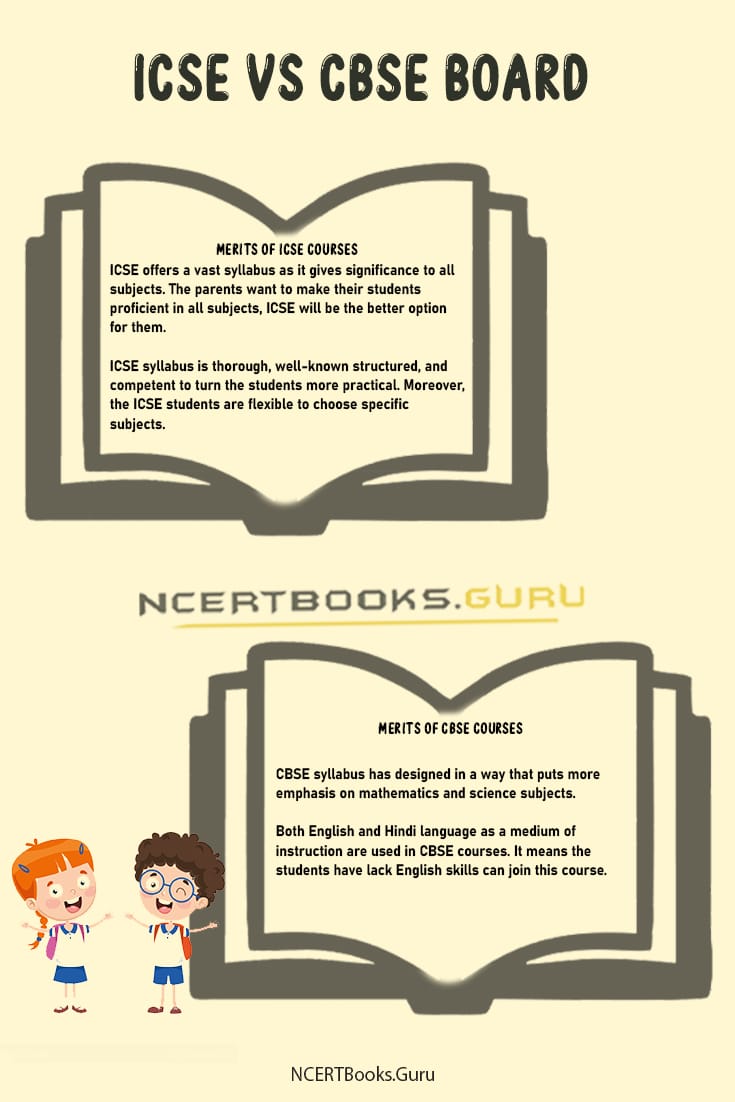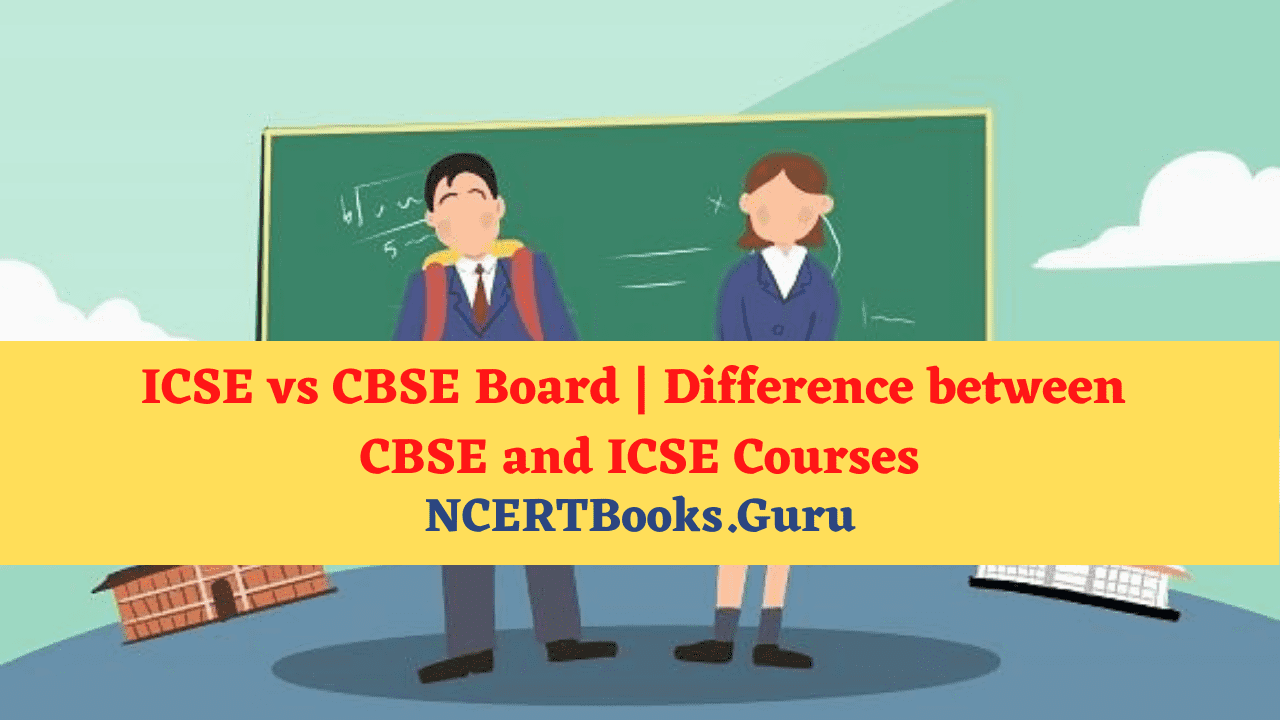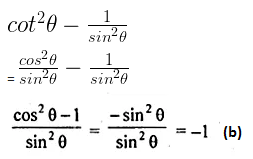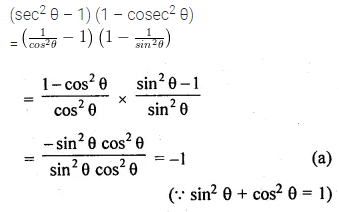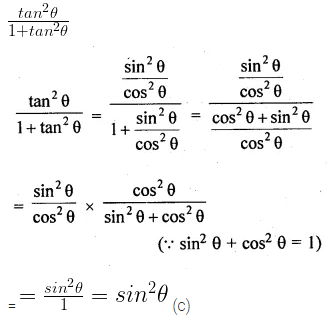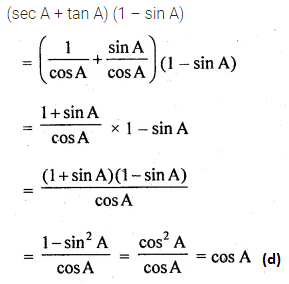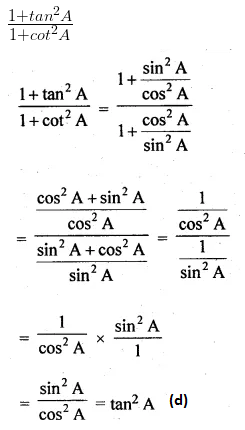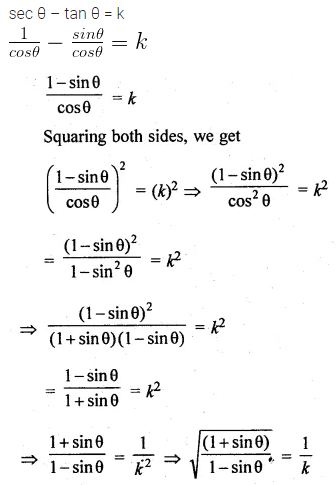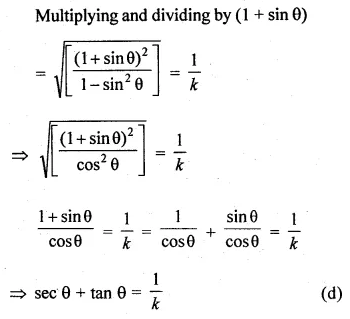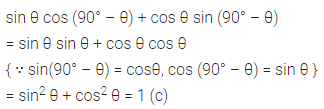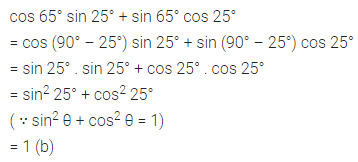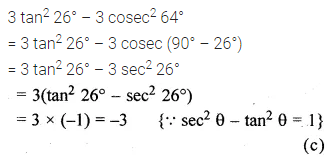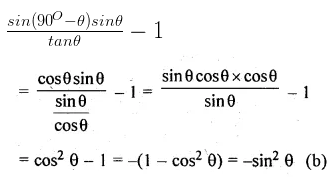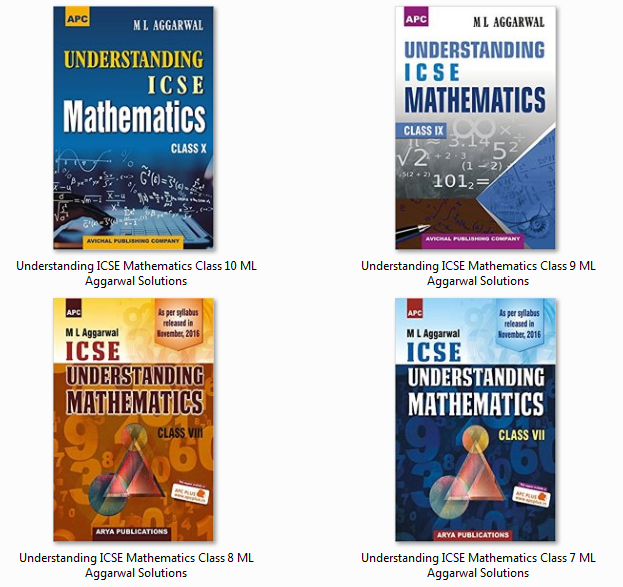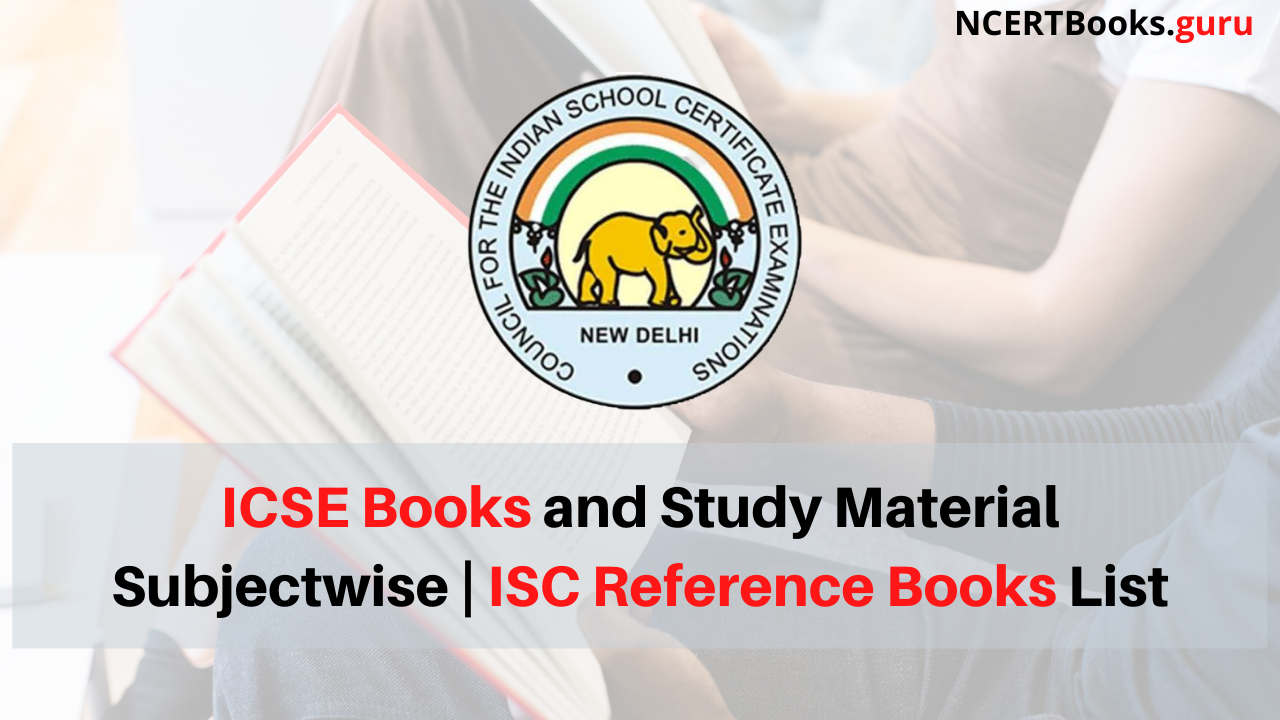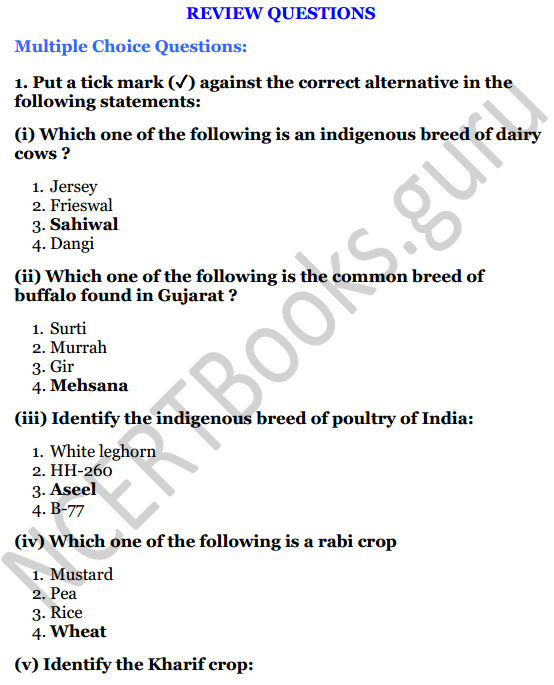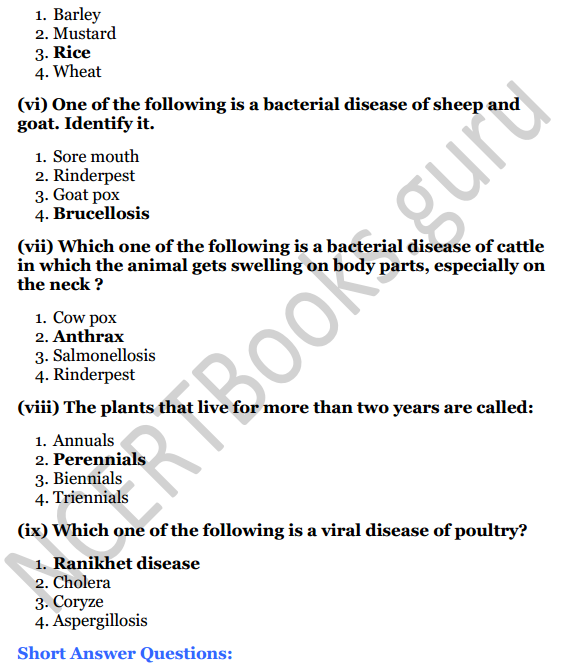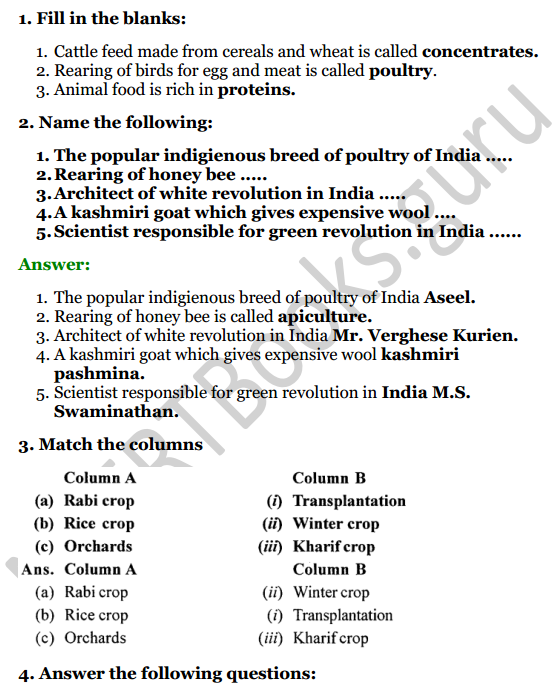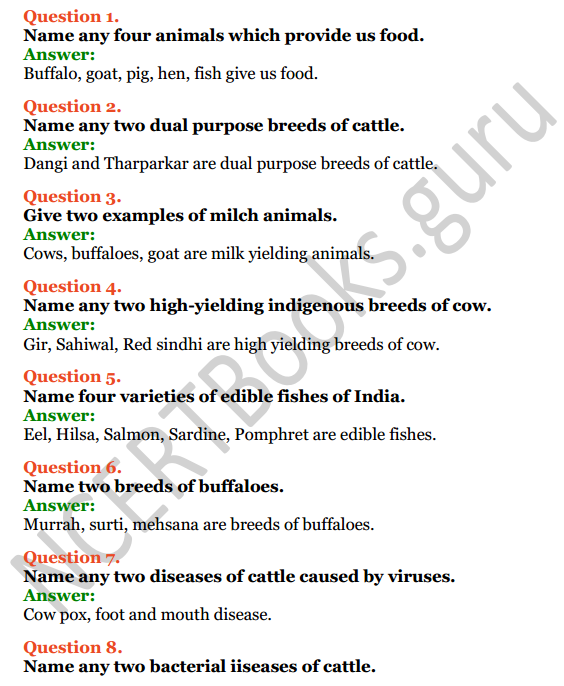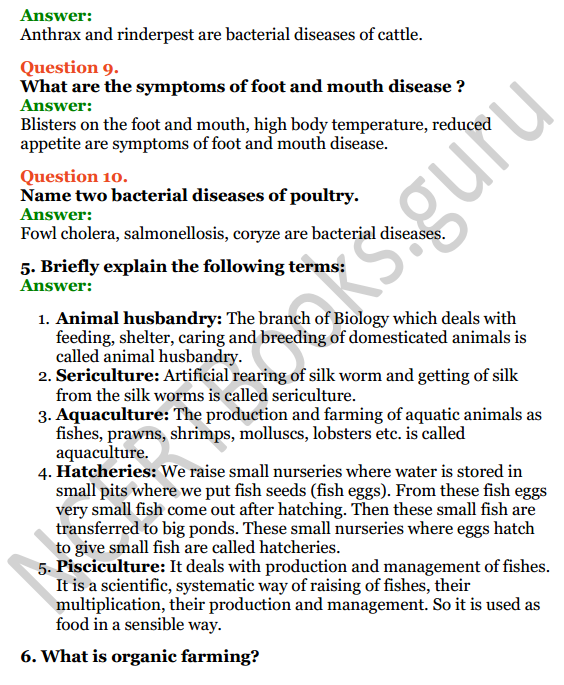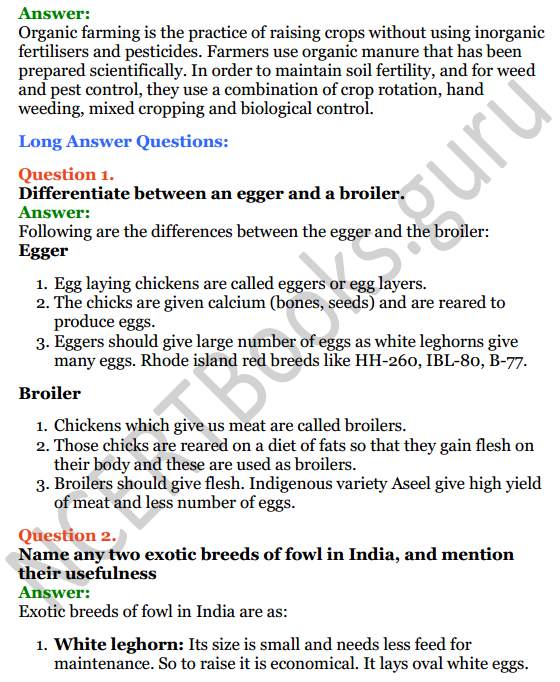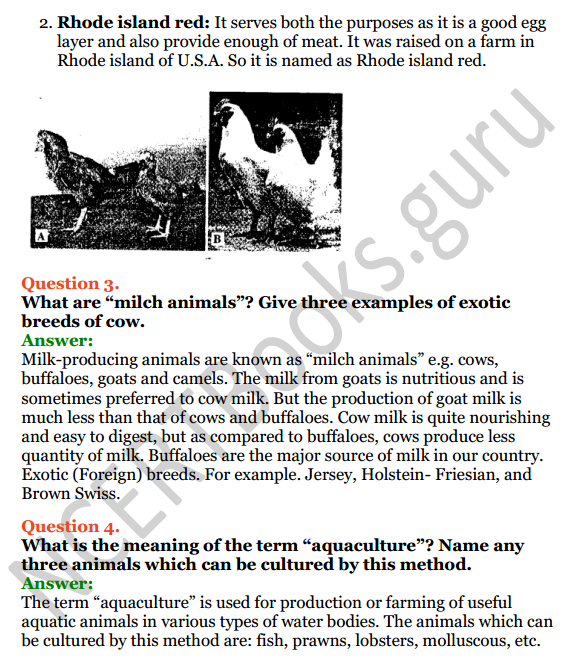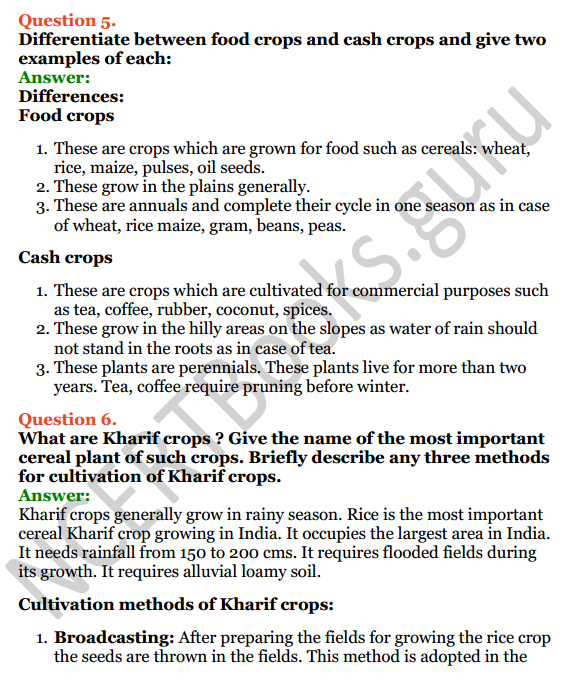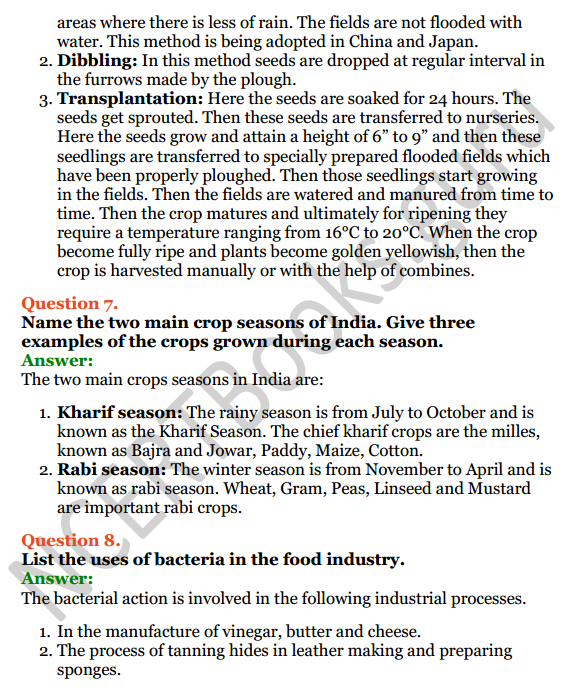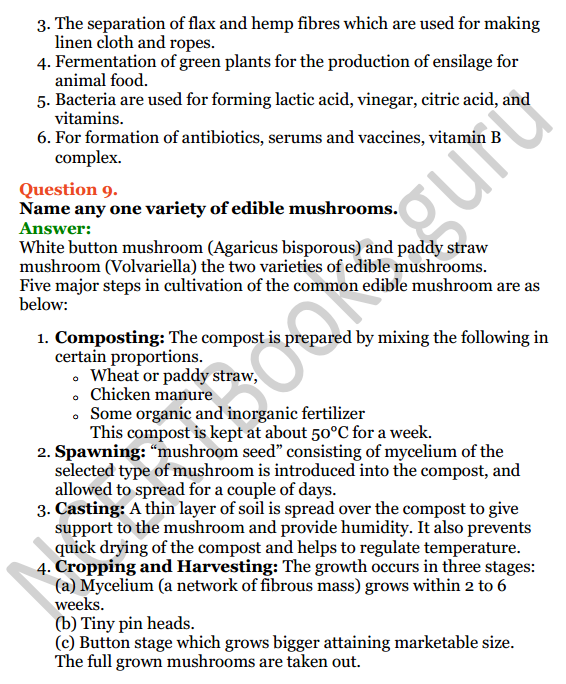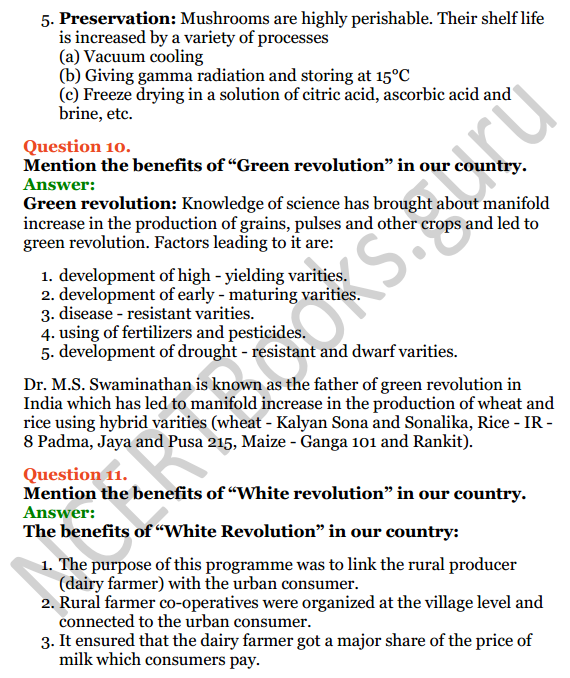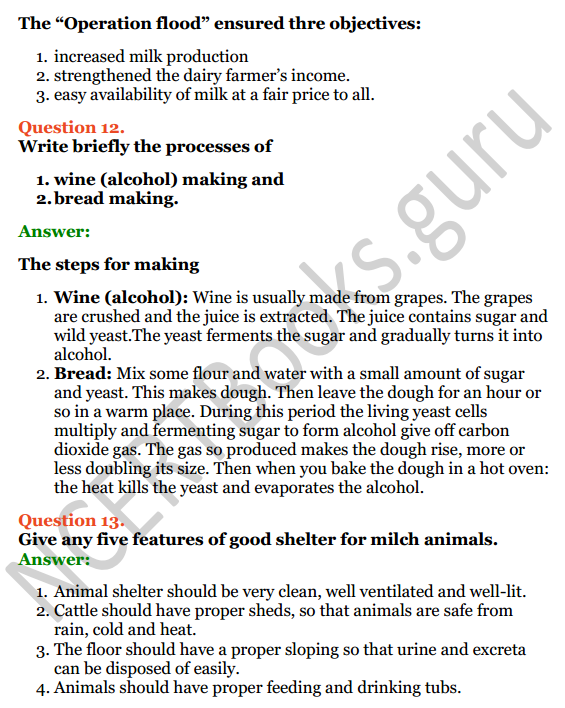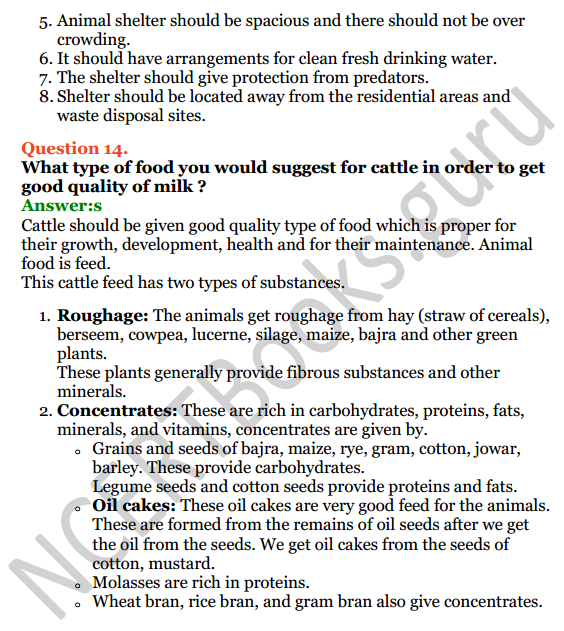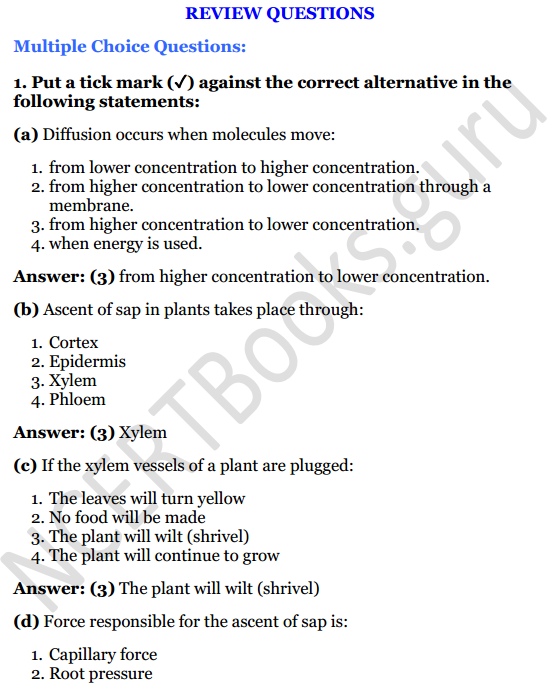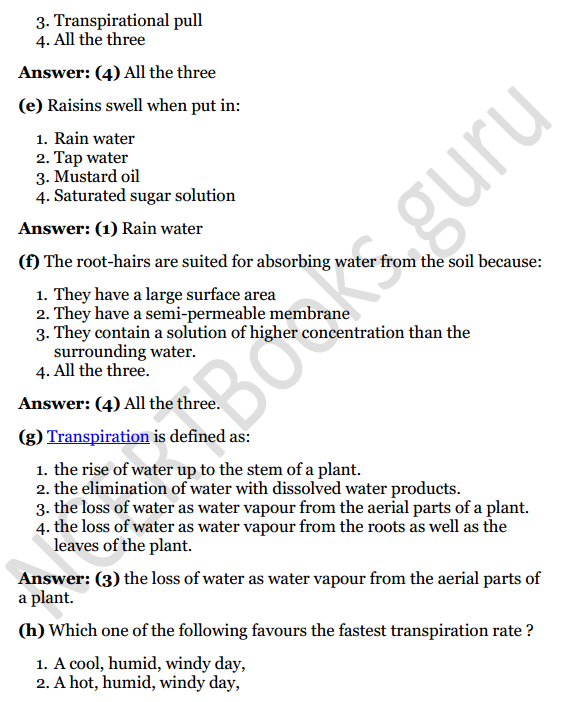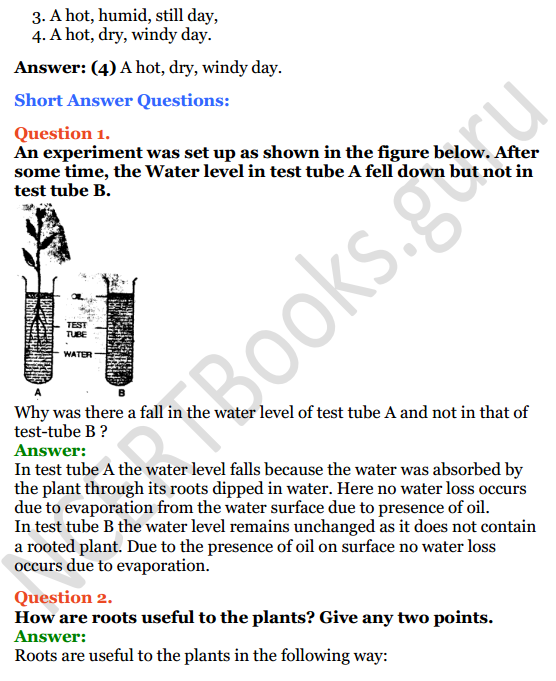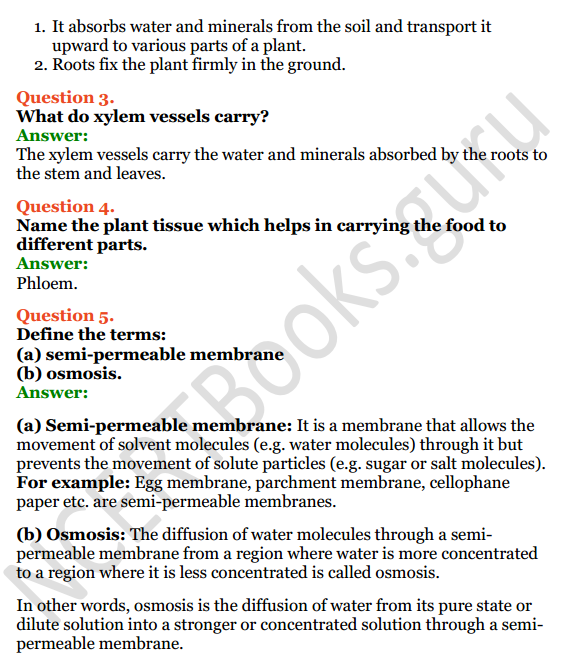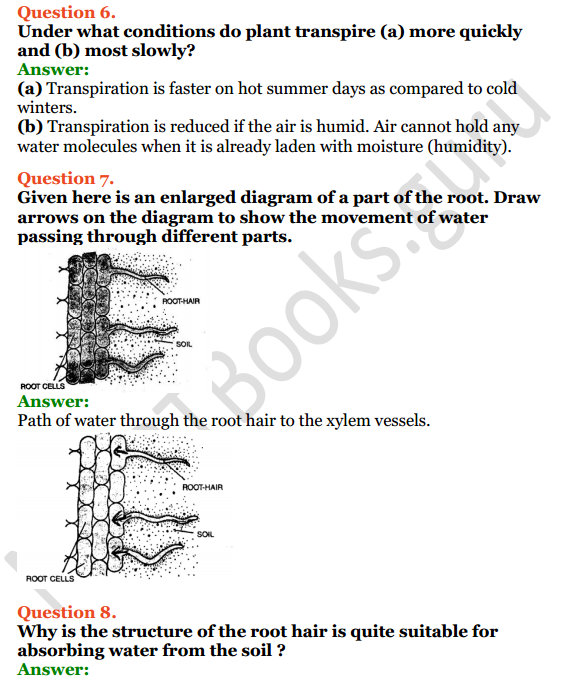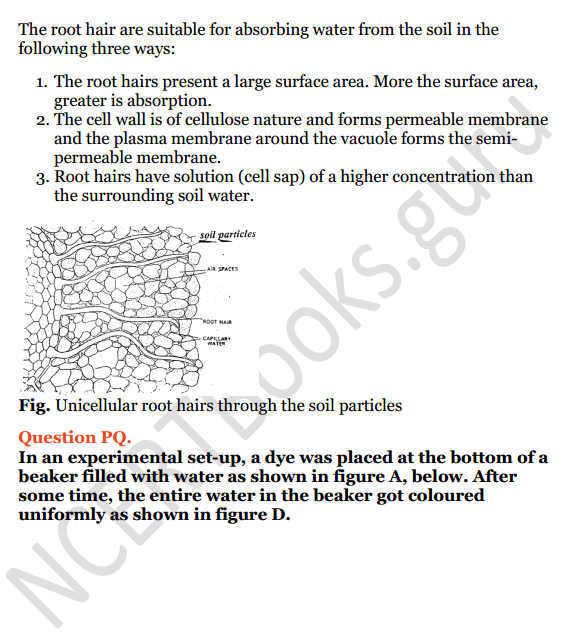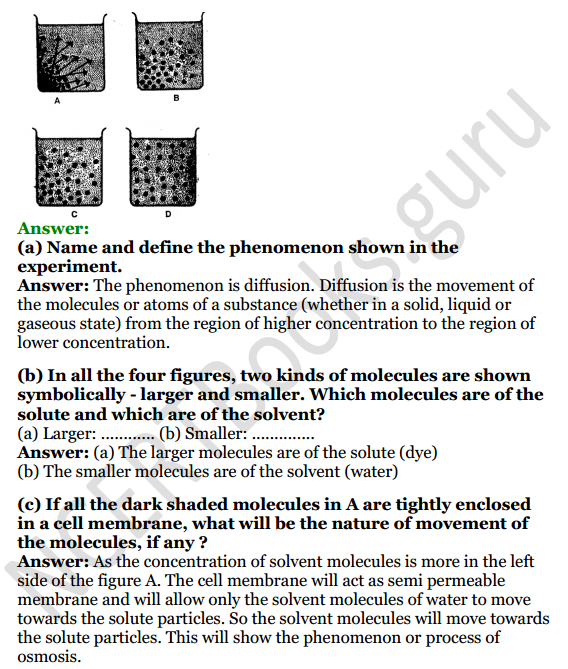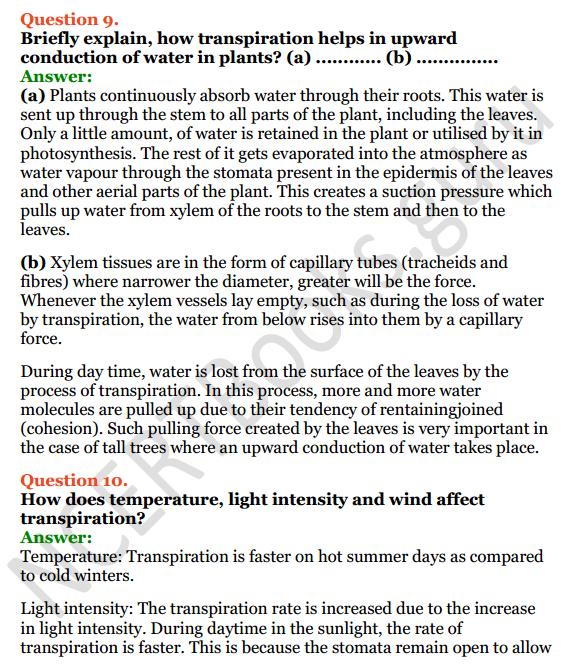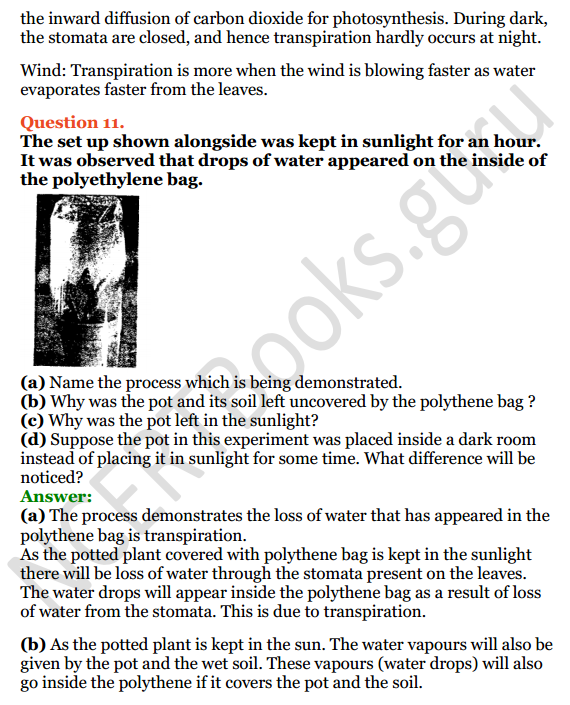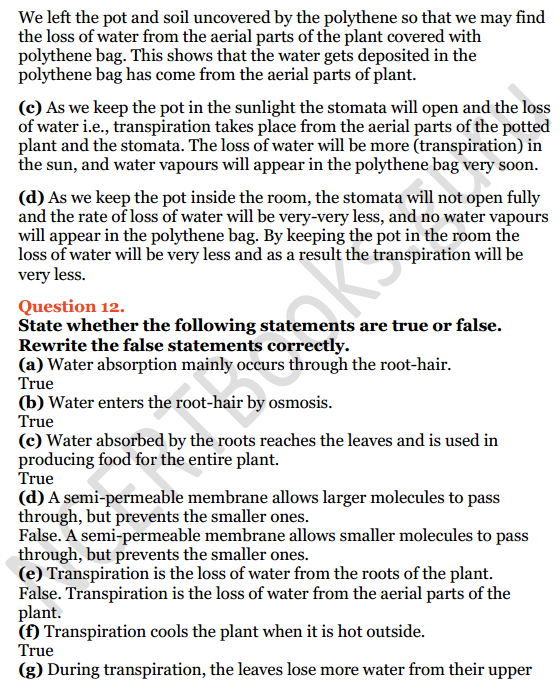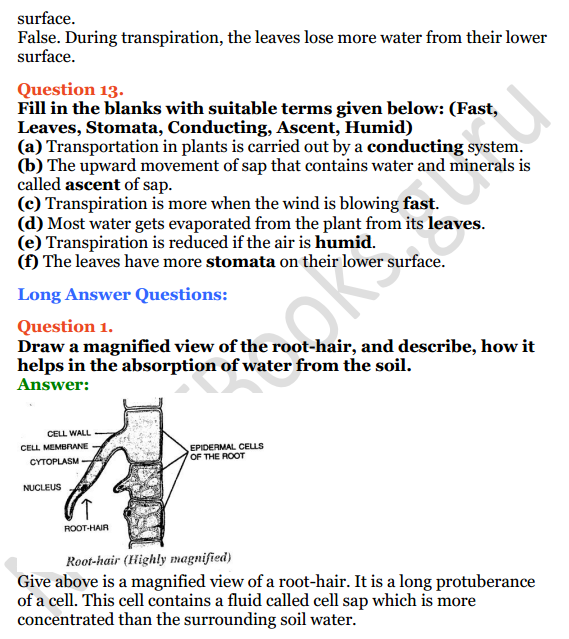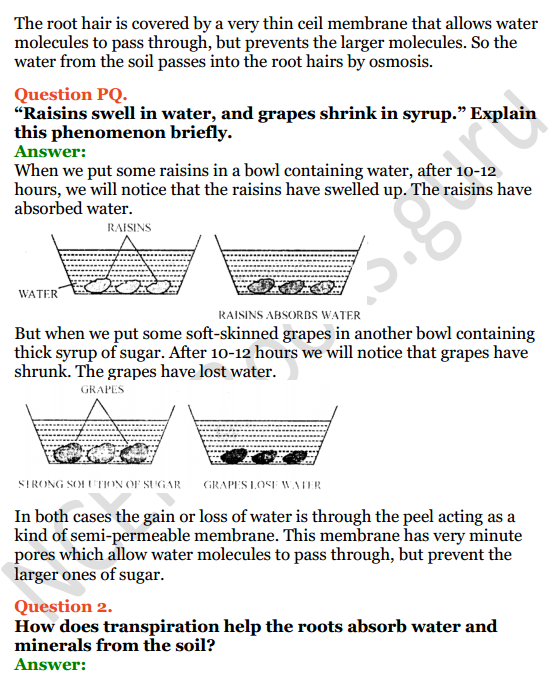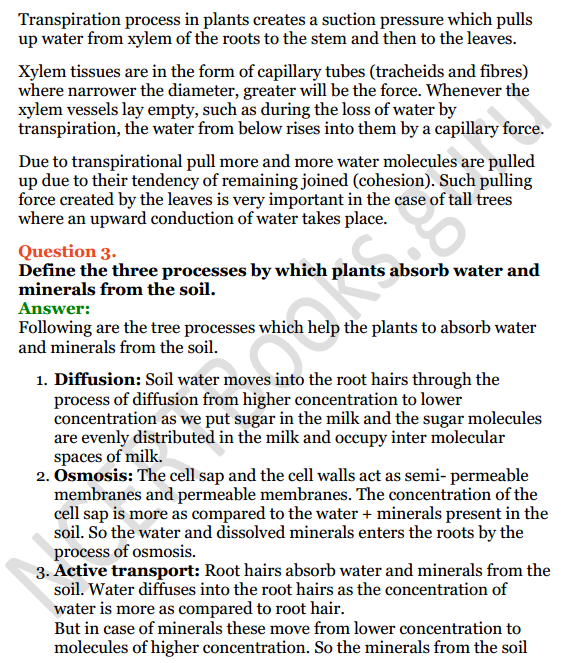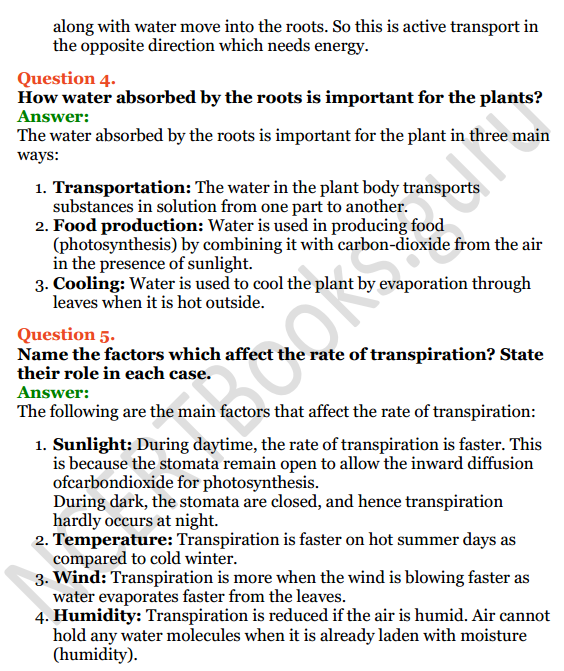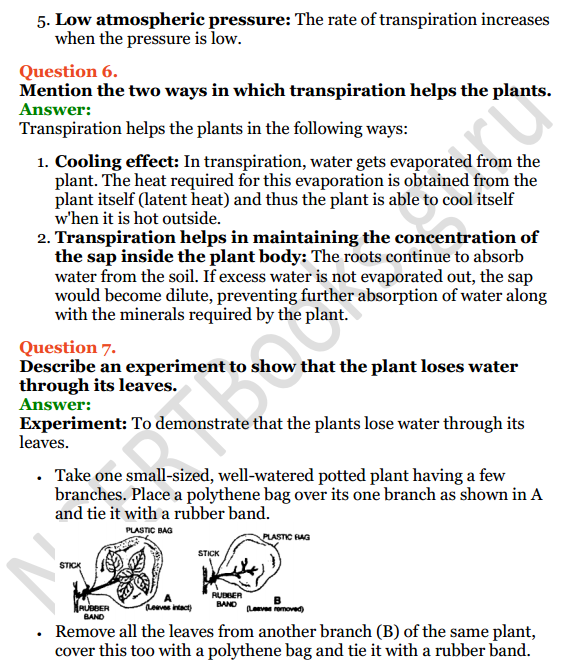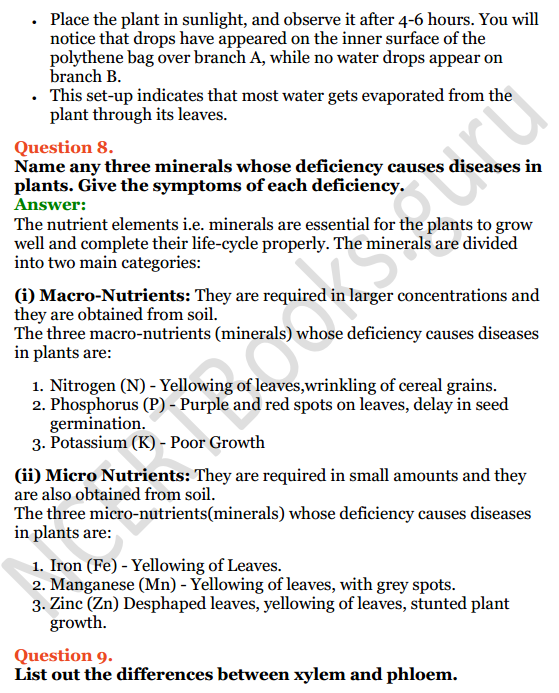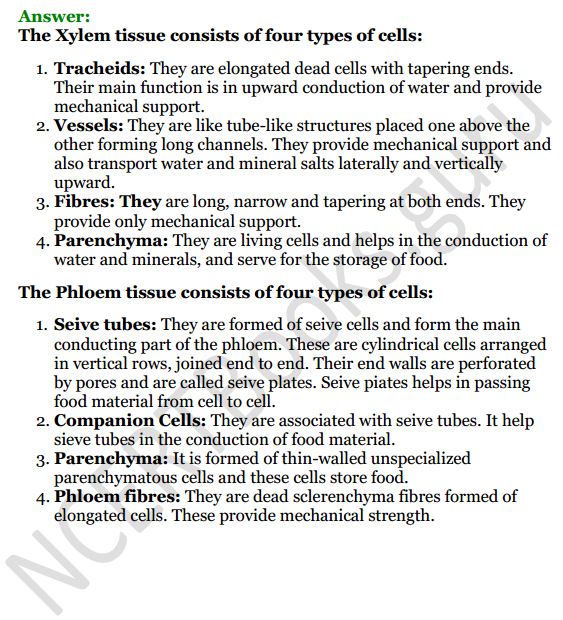ICSE Books: Download ICSE Books and ISC for class 12, 11, 10, 9, 8, 7, 6, 5, 4, 3, 2 and 1 all subjects for Competitve Exams, CISCE Board (High School & Intermediate 2019-20). CISCE Board Books for the preparation of Competitve exams and for the academic session 2019-2020 in English Medium. ICSE Books considered alterantive to NCERT Books in quality content.
All the questions that are asked in CISCE board exams are completely based on ICSE or ISC Books. So it is must that students should have good knowledge over CISCE Board Books. Having good knowledge over ICSE and ISC Books will not only help students to crack the board exam but also helps to clear the toughest competitive engineering, medical entrance exams. In this page we are providing ICSE or ISC Books for Class 12, 11, 10, 9, 8, 7, 6, 5, 4, 3, 2 and 1 for free. ICSE/ISC Books PDF for Class 12, 11, 10, 9, 8, 7, 6, 5, 4, 3, 2 and 1 can be downloaded without any cost.
Council for the Indian School Certificate Examination (CISCE) conducts the ICSE exam for all the affiliated schools. ICSE frames the class 9 and class 10 strategically to give an in-depth understanding of several important topics, especially from science and maths topics.
The ICSE syllabus includes some of the most important topics that forms the basic foundations. So, it is very important to be well-equipped with all the ICSE books and have a proper understanding of the concepts.
To help the ICSE students know about the best reference books, a list of top books are given here. Students are required to download ICSE books PDF to be able to study at any time.
Check the table given below for reference ICSE books:
ICSE Books Free PDF Download
- ICSE Books For Class 8
- ICSE Books For Class 9
- ICSE Books For Class 10
- ISC Books For Class 11
- ISC Books For Class 12
Read:
ICSE Books for Class 9 and Class 10
ICSE Subjectwise List of Prescribed Textbooks
You can go through the list of prescribed books for all the subjects as reading from multiple sources will just confuse you. ICSE Textbooks prevailing will provide in-depth knowledge about the particular subject. You can complete your homework or assignments simply by using these books. Utilize these ultimate preparation tools and make your learning complete. You can gain insights into the Syllabus Topics.
To help all such students preparing for their ICSE Board Exams we have compiled the best reference books that aid in your preparation. You will have everything covered in these books right from basic standard to high standard. All the concepts are explained in a descriptive manner and simple language. All the ISC Books and Study Material Present are given as per the Latest CISCE Curriculum and followed by many schools.
Read More: Veer gatha project paragraph 300 words
English(01)
PAPER 1. (Language)
No specific book is being recommended for background reading.
PAPER 2. (Literature in English)
- DRAMA: The Merchant of Venice
(Shakespeare’s unabridged play by A.W. Verity)
OR
- The Mousetrap – Agatha Christie
- TREASURE TROVE – A collection of ICSE Poems & Short Stories (Evergreen Publications (India) Ltd. New Delhi).
Poetry
- Heart of a Tree by Henry Cuyler Bunner
- After Blenheim by Robert Southey
- The Cold Within by James Patrick Kinney
- The Patriot by Robert Browning
- Nine Gold Medals by David Roth
- Television by Roald Dahl
- Daffodils by William Wordsworth
- Bangle sellers by Sarojini Naidu
- Abu Ben Adheim by Leigh Hunt
- I Know why the Caged Bird Sings by Maya Angelou
Prose
1. Short Stories:
(i) Chief Seattle’s Speech
(ii) The Old Man at the Bridge by Earnest
Hemmingway
(iii) A Horse and Two Goats by R.K. Narayan
(iv) Hearts and Hands by O’ Henry
(v) A Face in the Dark by Ruskin Bond
(vi) Angel in Disguise by T.S. Arthur
(vii) The Little Match Girl by Hans Christian
Andersen
(viii) The Blue Bead by Norah Burke
(ix) My Greatest Olympic Prize by Jesse
Owens
(x) All Summer in a Day by Ray Bradbury
2. Animal Farm by George Orwell
3. Call of the Wild by Jack London
Indian Languages
AO NAGA(42)
- Mejen O 2nd edition.
(An Anthology of Poems and Short Stories by Contemporary Ao writers, JMS Publication).
- Khristan Aeni Aoba 2nd edition.
(A translation of John Bunyan’s ‘The Pilgrim’s Progress’, A BAM Publication).
- Akumlir Wadang by L. Imti Aier.
Assamese(02)
- Karengar Ligiri (Drama): by Jyoti Prasad Agarwala
- Saudor Puteke Naau Meli Jai (Novel) by Homen Buragohain
- Kabita Manjuri (a collection of poems)
- Asomiya Chuti Galpar Prabah (a collection
of short stories)
Bengali(03)
(i)Sonkolita: A collection of ICSE Short Stories & Poems by Power Publishers, Kolkata
Short Stories:
- Ginni by Rabindranath Tagore.
- Laloo by Sarat Chandra Chattopadhyay
- Baama by Bibhutibhushan Banadyopadhyay
- Canvassar by Banaphul
- Naam by Narendranath Mitra
- Asohojogee by Manik Bandyopadhyay
- Debotar Jonmo by Shibram Chakraborty
- Neel Manusher Kahini by Sunil Gangyopadhyay
- Gandhota Baro Sandehojanak by Shirshendu Mukhopadhyay
- Lokti by Humayun Ahmed
(ii)Poems:
- Bangabhumir prati by Madhusudan Dutta
- Shobhotar prati by Rabindranath Tagore
- Kuli-Mojur by Najrul Islam
- Aabar Asibo Phire by Jibananda Das
- Siri by Sukanta Bhattacharya
- Rabindranather Prati by Buddhadeb Basu
- Phul Futuk Na Futuk by Subhash Mukhopadhay
- Amalkanti by Nirendranath Chakraborty
- Babu Bolen by Shankha Ghosh
- Kho-Kho by Amitabha Dasgupta
(iii) Novel: Chander Pahar by Bibhutibhushan Bandyopadhyay
(iv) Drama: Jambo by Mohit Chattopadhyay
DZONGKHA(26)
(i) Gyalse Laglen by Prose (Reader VIII)
(ii) Legshed Langdor Shenjed Proverbs
(iii)Biography of Ashi Nangse
GARO(40)
(i) Kadimgimin Seanirang Bak II: C compiled by Lindrid D. Shira
1. A Chikrangni Nokma Songa by Llwellyn R. Marak
2. Nokpante by Brucellina G momin
3. Balpakram by Llwellyn R. Marak
4. David Livingstone by Tojing S Sangma
5. Sepoy Mutiny ong gniko Jumang Niksoa by Vinthon M. Momin
6. Rev. Thangkan K. Sangma by Lindrid D. Shira
7. Changsao Dakgrikram A.bao Krismas Salo by Mackenson Rongmuthu
8. Garo Hills Damgipin A.gisi by Rev. Gilbert K Marak
9. Ahaia Ba Medong Ra.ona by Aldrich Ch. Marak
10. Chengoni A chik Kattarang by Dewansing Rongmuthu
11.Jakgitel Bil Aro Miksongani by Keneth M. Momin
12. Turani Chatro chatrirangni Bajengdeba Ramako Re.ani Bewal by Wilson K Marak
13. A song De.a by Aldrich Ch. Momin
14. Kangalni Dal Gipa Mande ong.ani by Lindrid D. Shira
15. Indiani Jakgitelanina Krenggiparangni Pegipa by Icylian R. Marak
(ii)Poetry
Chason Gital A.Chik Poetryrang Compiled by Keneth M.Momin
1. Ma.ani Ka.saa by H. B. Sangma
2. Bidan Chimik by S. S. Marak
3. A. Songtagna Sintea by S. S. Sangma
4. Katta Pagitcham Niam Songittcham by D. S. Rongmuthu
5. O Sia by J. Rongmuthu
6. Ka.saa by Keneth Momin
7. Ritimkari by B. S. Sangma
8. Cha.asia by B. S. Bangshall
9. Saljong Tasin Me chik by M.R. Sangma
10. A.gilsak Dal.begipa Alda Nok by M. Rongmuthu
(iii) Veniceni Badinggipa by (Late) Mackenson
Rongumuthu.
Gujarathi(04)
Sahitya Gurjar: A collection of ICSE Short Stories and Poems.
(i) Short Stories: (All short stories to be studied)
1.Khari Maa by Ramanlal Desai
2.Parivartan by Gaurishankar Joshi (Dhumketu)
3.Sad Vartyo by Zaverchand Meghani
4.Jamunanu Poor by Ramnarayan Pathak
5.Ladu nu Jaman by Pannalal Patel
6. Annjalpani by Pitambar Patel
7.Maji no pyalo by Gulabdas Broker
8.Sanskarni Shrimantai by Kundanika Kapadia
9.Dadano Dallo by Ila Arab Mehta
10.Himmat maro dost by Mohammad Mankad
(ii) Poems: (All poems to be studied)
1.Vaishnavjan by Narsinh Mehta
2. Lochan Man no Jagado by KaviDayaram
3. Pranam Mara by Ramnarayan Pathak
4.Ae Nishal Ae Savar by Sundarji Betai
5. Chha Rutuo by Umashankar Joshi
6.Banavati Phoolone by Prahlad Parekh
7. Boliye na Kain by Rajendra Shah
8. Gram Mata by Sursingji Gohil “ Kalapi”
9. Panchika by Mukesh Joshi
10. Subhashito
(iii) Novel: Vaansano Ankur by Smt Varsha Adalja
(iv) Ekanki Gurjar A collection of ICSE One Act
Plays: (Gurjar Granthratna Karyalaya,
Ahmedabad).
1.Vruksh by Labhshankar Thakar
2.Karna Kunti by Manubhai Pancholi
3.Raja Ladu Sinh by Dr Shiv Shankar Joshi
4.Hukum Malik by Chinu Modi
5.Lagnana Umedwar by Jyotindra Dave
6.Deshbhakt Jagdusha by Raman Lal Soni
Hindi(05)
Recommended for background work: Saras Hindi Vyakaran (Evergreen Publications, New Delhi)
Sahitya Sagar: A collection of ICSE Short
Stories &Poems. (Evergreen Publications, New
Delhi)
(i) Short Stories:
1. Baat Athanni Ki by Sundarshan
2. Kaki by Siyaram Sharan Gupta
3. Maha Yagya Ka Puruskar by Yashpal
4. Netaji Ka Chasma by Swayam Prakash
5. Apna Apna Bhagya by Jainendra Kumar
6. Bade Ghar Ki Beti by Premchand
7. Sandeh by Jaishankar Prashad
8. Jamun Ka Ped by Krishna Chander
9. Bhede Aur Bhediyen by Hari S hankar
Parsai
10. Do Kalakar by Mannu Bhandari
(ii) Poems:
1. Sakhi byKabir Das
2. Girdhar Ki Kundaliyan by Girdhar Kavi
Rai
3. Swarg Bana Sakte Hai by Ramdhari Singh
Dinkar
4. Wah Janmabhumi Meri by Sohanlal
Dwivedi
5. Megh Aaye by Sarveshwar Dayal Saxena
6. Sur Ke Pad by Surdas
7. Vinay Ke Pad by Tulsidas
8. Bhichhuk by Surya Kant Tripathi ‘Nirala’
9. Chalna Hamara Kam Hai by Shivmangal
Singh ‘Suman’
10. Matri Mandir Ki Or by Subhadra Kumari
Chauhan
(iii) Novel: Naya Raasta by Sushma Agarwal
(iv) Ekanki Sanchay – A collection of ICSE One Act Plays: (Evergreen Publications, New Delhi)
1. Sanskar Aur Bhavna by Vishu Prabhakar
2. Bahu Ki Vida by Vinod Rastogi
3. Matri Bhoomi Ka Man by Hari Krishna
“Premi”
4. Sukhi Dali by Upendra Nath “Ashka”
5. Mahabharat Ki Ek Sanjh by Bharat
Bhushan Agrawal
6. Deepdan by Ram Kumar Verma
Kannada(06)
Sahitya Sangama: A collection of ICSE Short Stories & Poems. (Navakarnataka Publications,
Bengaluru)
(i) Short Stories:
1. Shivabhutiya Kathe by Panchatantra
2. Deepavali Mahime by Janapada
3. Thalmege Olida Adrushta by N. Damodhara
4. Tuchip, Tudand, Tubad -Ready by Chaduranga
5. Garuadagambada Dasaiah by Govuru
6. Stainless Steel Patregalu by Vasudhendra
7. Kalavida by TA. RA. Subha Rao
8. Tollu Gatti by Kailasam
9. Kathegaara Manjanna by Kuvempu
10. Sevaashramada Linganna by Belagere Krishna Shastri
(ii) Poems:
1. Vachanagalu by Basavanna & Akkamahadevi
2. Baksurana Vadhe by Kumaravyasa
3. Tirukana Kanasu by Muppina Shadakshri
4. Garathiya Hadugala by Janapada
5. Negila Yogi by Kuvempu
6. Aru Hitavaru Ninage by Purandara Dasaru
7. Vashitha Vishwamitra Vivada by Ragayanka
8. Keladi Arasara Kathe by Lavani
9. Mankuhimmana Kagga by D.V. Gundappa
10. Mithile by S.R. Yekkundi
(iii) Novel: Natya Mayuri by Shri Sa. Shi. Marulayya
(iv) Drama: Hoovi by H.S. Venkatesh Murthy.
Khasi (07)
(i) U Khain Bad Ka Bgen: by B.Chedrack
Jyrwa
(ii) Ka Ki Sngi U Syiem: by Dewi Singh
Khongdup.
1. U Phareng ha Lawkyntang
2. U Ksew, Ka Miaw bad u Tuta
3. U Sier Laplang bad u Shken
4. Ka Syiem Skei bad ki Hynniew Mahadei
5. Ki Nongap masi u Syiem ha Sor
Shillong
6. U khun ka Nangdie phlang
(iii)Na Mihngi Sepngi: by Rev. H. Elias
1. Ka Thma Hidarpes
2. U Mahajon Ka Benis
3. Ka Khein-Kur Khein-kha
4. I Mei
5. Ka Shong jong ka Jingphohsniew
6. La Ka Lynti
(iv) Sawdong Ka Lynwiar Dpei: by P.G. Gatphoh
1. Ki Paro Ksiar
2. U Aadak bad la ki Lok
3. Ka Lukhimai
Lepcha(20)
Recommended for background work: A Lepcha Grammar and Composition for Classes IX and X.
(i) Chhukpryom Pundor: Treasure of Prose, a Lepcha text book for Classes IX and X.
(ii) Chhukdong Pundor: Treasure of Poems, a Lepcha text book for Classes IX and X.
(iii) Sung Norzot: Treasure of Stories, a Lepcha Rapid Reader for Classes IX and X.
Malayalam(08)
Sahitya Surabhi: A collection of ICSE Short Stories & Poems) (D.C. Books, Kottayam)
(i) Short Stories:
1. Manikkan by Lalithambika Antherjanam
2. Uthuppante Kinar by Karoor Neelakanta Pillai
3. Neipayasam by Madhavikutty
4. Kattilekku Pokaruthe Kunje by Shehabudeen Poithumkadavu
5. Prakasham Parathunna Penkutty by T. Padmanabhan
6. Janmadinam by Vaikom Mu hammad Basheer
7. Thahalseedarude Acha by Thakazhy Sivasankara Pillai
8. Kaliya Mardanam by Kakkanadan
9. Model by Ponkunnam Varkey
10. Petta Vayar by C V Balakrishnan
(ii) Poems:
1. Lekshmanopadesham by Ezhuthachan
2. Puthen Kalavum Arivaalum by Edassery Govindan Nair
3. Karna Shoshana (1- 110 lines) by Ulloor
S Parameswarayyar
4. Karma Bhoomiyude Pinchukaal by Vallathol
5. Bhoomikkoru Charama Geetam by O N V
Kuruppu
6. Manikya Veena by Vennikkulam
7. Vinda Kaaladikal by P Bhaskaran
8. Tachente Makal by Vijaya Lekshmi
9. Priyathame Prabhatame by K Ayyappa Panicker
10. Manaswani by Chagampuzha
(iii) Novel: Mayyazhippuzhayude Theerangalil by M Mukundan
(iv) Drama: Saketham by C N Sreekantan Nair
Marathi(09)
(i) Kathakunj (Katha by Sankalan)
(ii) Kavyangan (Kavya by Sankalan)
(iii)Karunastak (Kadambari)
(iv) Rangsparsh (Ekankika by Sankalan)
Manipuri(18)
(i) Lamjing Lairik ( Meetei May ek Primer Classes IX & X).
(ii) Manipuri Sahitya Nachom ( Meetei Mayek or Roman Script Classes IX & X)
(iii) Manipuri Tengbang Sahitya (Meetei Mayek or Roman Script Classes IX & X)
(iv) Anouba Manipuri Grammar (Meetei Mayek or Roman Script Classes IX & X)
Mizo(17)
Recommended for background work.
Mizo Grammar & Composition Part II by F. Lianhmingthanga and Lalthianghlima
(Hauhlira Press, Saron Veng, Aizawl).
(i) For Class IX –
1. Mizo 9 by MBSE (revised)
2. Irrawady Luikamah by James Dokhuma (Rapid Reader)
(ii) For Class X –
1. Mizo – 9 by MBSE (revised)
2. Khawnglung Run by R. Lalrewna (Rapid Reader)
Nepali(10)
(i) Short Stories
1. Aunthi by Achha Rai Rashik
2. Chaprasi by Indrabhahadur Rai
3. Taar Chudieko Saarangi by Jasyonzon
Pyasi
4. Mrituko Mukhenji by Parsuram Roka
5. Sangat by Badrinarayan Pradhan
6. Jeodolash by Matilda Rai
7. Maachako Mol by Sivkumar Rai
8. Jyotibinako Ujyalo by Sanu Lama
9. Gariman by Indra Sundas
10.Jiwan Yatra by M.M. Gurung
(ii) Poems
1. Mritukamana Kehi Mera by Agamsing Giri
2. Man by Girmi Sherpa
3. Bolee by Tekdhoj Jimba
4. Natra Barbad Bhayo by Dharnidhar Koirala
5. Laxya by Parashmani Pradhan
6. Karma by Balkrishna Sam
7. Ram-Bharat Sambat by Bhanubhaktta
Acharya
8 Kaal Mahimaa by Lekhnath Paudyal
9. Madan Bhotbat Pharkadaby Laxmiprasad
Deokota
10. Utsarga by Lakhi Devi Sundas
iii) Novel: Bhrammer by Rupnarayan Sinha
iv) Ekanki Kunj: A collection of ICSE One Act
Plays. (Gamma Publication, Darjeeling)
1. Biyog by Manbahadur Mukhia
2. Tika by Mohan by Pukar
3. Ma Bhat Khanna by Ramlal Adhikari
4. Maag by Leela
5. Saahinu by Sanu Bhai Sharma
6. Shringkhala Bandane Chhanharu by Laxman Shreemal
Odia(11)
Gyanjali : A collection of Short Stories & Poems. (Friends Publishers, Cuttack)
(i) Short Stories
1. Dhulia Baba by Fakir Mohan Senapati
2. Bhadraloka by Prativa Ray
3. Shikar by Bhagawati Charana
Panigrahi
4. Krupana by Mr. Manoj Das
5. Mukhagni by Lakshmi Chand
6. Nayanapura Express by Surendra Mohanty
7. Dimiri Phula by Akhila Mohan Pattnayak
8. Samantara Saralarekha by Bibhuti
Pattanayak
9. Neela Mastarani by Godabarish Mohapatra
10. Anguthi by Sachidananda Routray
(ii) Poems
1. Gandharira Ashirbada by Kalandi Charana Panigrahi
2. Kali Jai by Pandit Godabarish Mishra
3. Mahima by Swabhaba Kabi Gangadhara Meher
4. Banaphula Udyana Kusum by Utkala Bharati Kuntala Kumari Sabat
5. Garibara Durgastaba by Pandit Godabarish Mohapatra
6. Jagate Kebala by Kabisurya Baladeva Ratha
7. Grama Patha by Binod Chandra Nayak
8. Mani Kanchana Yoga by Radhamohan Gadanayak
9. Bandira Biraha Byatha by Pandit Gopabandhu Das
10. Khadyotika by Bidyut Prava Devi
(iii) Novel: ‘Aadoora Sakala by Prashant Mohanty
(iv) Ekakinka Chayan: A collection of ICSE One Act Plays(Friends Publishers, Cuttack)
1. Petu by Pranabandhu Kar
2. Rani Shuka Dei by Manoranjan Das
3. Bagha Sikara by Ranjit Pattnaik
4. Konarka by Bhanja Kishore Pattnayak
5. Ahuti by Kartik Chandra Rath
6. Aee Pataka Tale by Kulamani Mohapatra
Punjabi(12)
Recommended grammar book in Punjabi
Shiromani Punjabi Vyakaran Ate Rachanawali
Kav by Katha Samvedna: A collection of Short Stories & Poems (Evergreen Publications, New Delhi)
(i) Short Stories
1. Pahuta Pandhi by Gurbax Singh
2. Bhatta by Sant Singh Sekhon
3. Zeenat Appa by Kartar Singh Duggal
4. Dharti Hethla Balad by Kulwant Singh Virk
5. Sanjhi Kandh by Santokh Singh Dheer
6. Saggi Phul by Gurdial Singh
7. Rub Te Ruttan by Dr. Dalip Kaur Tiwana
8. Baki Sab Sukh Saand Hai by Mohan Bhandari
9. Chandova by Kartar Singh Suri
10. Saheed by K.L. Garg
(ii) Poems
1. Sama by Bhai Veer Singh
2. Maa Da Dil by Firoz Din Sharaf
3. Mele Vich Jatt by Dhani Ram Chatrak
4. Chhatto Di Beri by Prof. Mohan Singh
5. Aaj Akhan Waris Shah Nu by Amrita Pritam
6. Jionde Bhagwan by Nand Lal Noorpuri
7. Rukh by Shiv Kumar Batalvi
8. Mera Bachpan by Harbhajan Singh
9. Nike Vade Dar by Jagtar
10. Hanera Jarega Kiven by Surjit Patar
(iii) Novel: Pataal De Githmuthiye by Jasbir Bhullar
(iv) Manch Mehak by A collection of ICSE One
Act Plays (Evergreen Publications, New Delhi)
1. Suhag by I.C. Nanda
2. Dr. Palta by Balwant Gargi
3. Dushman by Gurcharan Singh Jasuja
4. Parat Auan Tak by Satish Verma
5. Phullan Nu Kitaban Vich Na Rakho by Pali Bhupinder
Sanskrit(19)
(i) Sanskrit Vani Book 4 ( for C lass IX) by H.D. V ijayshri and Mrs. S. Bolar
(ii) Sanskrit Vani Book 5 ( for C lass X) by H.D. Vijayshri and Mrs. S. Bolar
Tamil(13)
(i) Rajaraja Cholan (Drama) by R. Ramanathan
(ii) Veerapandiya Kattabhomman (Novel) by K. Jeeva B harathi
(iii)Charitra Sambavangal (Historical Essays) by “ Vaandumama” V . K rishnamoorthy
Tangkhul(47)
(i)Tangkhul Tuitam K achiko, Class IX published by Luitham Press, Ukhrul (2006).
(ii) Tangkhul Tuitam K athara, Class X published by Luitham Press, Ukhrul (2006).
(iii)Kathaka Tangkhul Tuitam (Classes IX and X published by L uitham P ress, Ukhrul(2006).
Telugu(14)
Padya, Gadya Kadambamu – A collection of ICSE Short Stories and Poems
(i) Poems
1. Vidura Neethi by Tikkana Somayaji
2. Sneha Dharmam by Bammera Pothana
3. Atidhi Sevanamu by Sri Krishna Devarayalu
4. Paarijatha Prasoonamu by Nandi Thimmana
5. Hithopadesamu by Atukuri Molla
6. Sathaka Manjari – Narasima Sathakam by Seshappa Kavi (26, 38, 39, 54 poems)
& Sri Kalahasthiswara Sathakam by
Dhurjati (12,13,27,28 poems)
7. Krushivaludu by Duvvuri Ramireddy
8. Manavathvam by Nandur
Ramakrishnamacharyulu
9. Mathru Mandiram by Devulapalli
Krishna Shastri
10. Nenantanu by Dasarathi Krishnamacharyulu
(ii) Short Stories
1. Indra Dyumuni Samudra Prayaanam by Madhira Subbanna Deekshitulu
2. Seethaanveshana by Padala Ramarao
3. Taapi Mesthri by Shri Paada Subramanya Sastri
4. Appudu Putti Vunte by Devulapalli Krishna Sastry
5. Oka Cheema Katha by Dr. Raavuri Bharadwaja
6. Swatantrodyama Nepadhyamulo Prabhodha Geetalu by Raavi Bharathi
7. Ugaduloo, Ushassuloo by Madhuranthakam Rajara
8. Bhasha Saili- Rachana Bedhalu by Chekuri Ramarao
9. .Riktha Hasthamulu by Vidya Prakasananda Giri Swamy
10. Samskruti by Acharya Khandavalli Lakshmi Ranjanam
(iii) Novel: Ganapathi – Chilakamarthi by Lakshmi Narasimham
(iv) Drama: Vishnu Sharma English Chaduvu by C.S. Rao
Tenyidie(41)
(i) Neteya
(ii) Noudo Dze by Dino and Viswedel
(iii)Uca –53 by Shurhozelie
Urdu(16)
Lazawal M uraqqe – A collection of ICSE Short Stories and Poems / Gazals
(i) Short Stories
1. Ibadat by Munshi Prem Chand
2. Bhola by Rajendar Singh Bedi
3. Bachpan by Ismath Choghtai
4. Pital Ka Ghanta by Qazi Abdus Sattar
5. Manzoor by Saadat Hasan Manto
6. Allah De Band Le by Razia Sajjad Zaheer
7. Aakhri Qadam by Dr. Zakir Hussain
8. Khadar Ka Kafan by Khaja Amed Abbas
9. Addu by Jeelani Bano
10. Ek Aur Shrawan Kumar by Salam Bin Razzaq
(ii) Poetry – Poems and Ghazals
1. Piya Baaj Piala Piya Jaye na (Ghazal) by Mohd Quli Qutub Shah
2. Faqeerana Ayee Sada Kar Chaley(Ghazal) by Mir Taqi Mir
3. Dard Minnat Kashey Dawa Na Huwa(Ghazal) by Mirza Ghalib
4. Phir Chedi Raat Baat Phooloon Ki (Ghazal) by Makhdoom Mohiuddin
5. Justujoo Jis Ki Thi…(Ghazal) by Sher e Yaar
6. Who To Khushboo Hai…(Ghazal) by Parveen Shakir
7. Kaljugh (Poem) by Nazeer Akbar Aabadi
8. Chand Aur Tare (Poem) by Sir Mohd Iqbal
9. Aawo Ke Koyi Khawaab Bunien(Poem) by Sahil Ludhiyanavi
10. Aurat (Poem) by Kaife Azmi
(iii) Novel: Nusuh Ka Khawaab by Nazeer Ahamed
(iv) Drama: Darwaze Khol Do by Krishan Chander
Modern Foreign Languages
French(27)
Teaching and study resource books:
(i) Ado published by CLE International
(ii) Bravo Published by Hatier Didier
(iii)Entre Jeunes published by CBSE
German(28)
Teaching and study resource books:
(i) For Class IX Planet 1 (Textbook and Workbook)
(ii) For Class X Planet 2 (Textbook and Workbook) Published by Langers in India under license from Hueber Verlag
Spanish(36)
Teaching and study resource books:
(i) Espanol Sin Fronteras Bk 2
(ii) Workbook Nuevo Ven Bk 2
(iii) Pasaporte Bk 2
What are ICSE Reference Books?
Students from all the CISCE affiliated schools take the ICSE exams every year. The schools follow some particular guidelines and a set of certain textbooks. The ICSE reference books are according to the CISCE curriculum and some books are also followed as textbooks by many schools. Additionally, the reference books can be helpful to gain insights about the syllabus topics.
Importance of ICSE Reference Books
Reference books can help a lot in preparing for the exams and understanding every topics efficiently. Some ICSE books may not explain a particular topic properly and at that time, reference books can be of great help. It can be said that having reference books can provide additional guidance and help the students to have a thorough understanding of the syllabus topics.
Notable ICSE Books
There are several ICSE books that one can follow. Some of the most notable authors and publishers of ICSE books for science and maths include:
- Concise series by Selina Publications
- Candid ICSE books
- S.Chand Publications
- Understanding ICSE Mathematics series by M.L. Aggarwal
- Together With series by Rachna Sagar publications
These were some of the famous books and publications that can be followed for class 8-10 of CISCE board. To check class-wise best reference books, visit the links given in the above table. It is important to choose the books according to self preference, content and way of presenting.
Keep visiting NCERTBooks.Guru to get complete assistance on ICSE and ISC exams. At NCERTBooks.Guru, students are also provided with the latest exam related notifications, syllabus, specimen papers and question papers to help them prepare more effectively.
